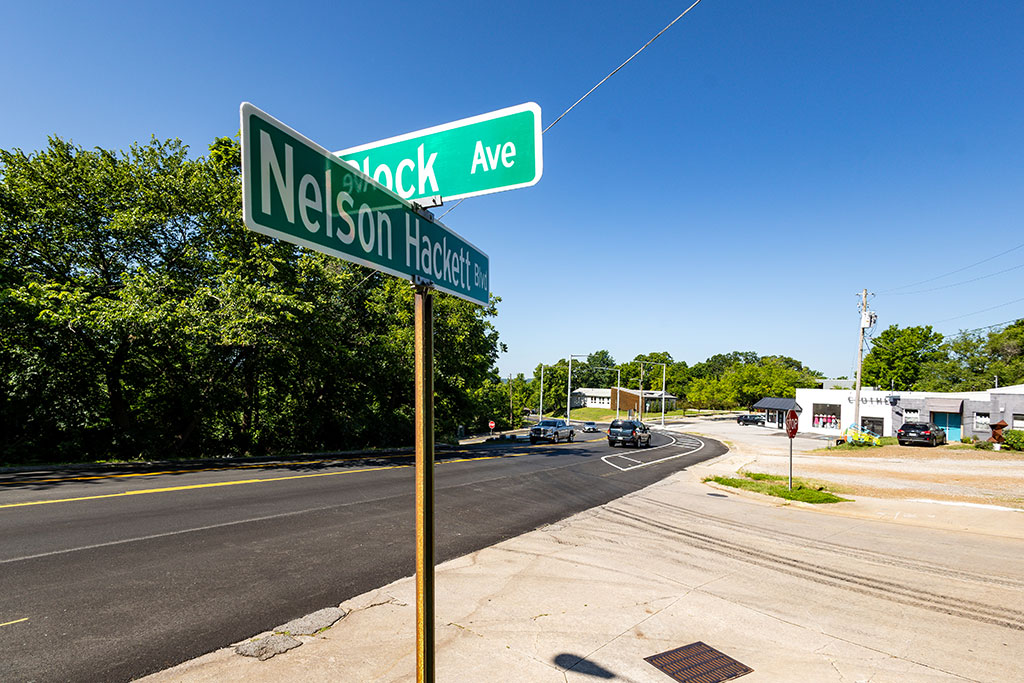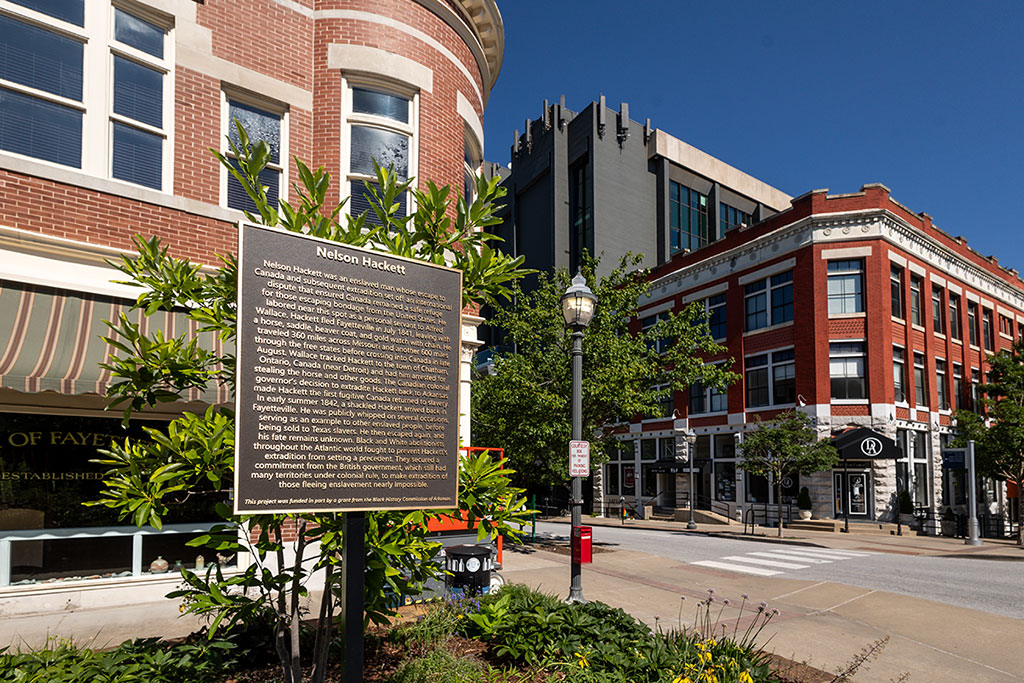 Traffic passes along Nelson Hackett Boulevard near Block Avenue on June 19, 2023. (Flyer photo/Todd Gill)
Traffic passes along Nelson Hackett Boulevard near Block Avenue on June 19, 2023. (Flyer photo/Todd Gill)Archibald Yell Boulevard was officially changed to Nelson Hackett Boulevard on Juneteenth.
New street signs were installed honoring Hackett, an enslaved man who fled Fayetteville nearly 182 years ago in search of freedom in Canada.
Hackett’s escape set off an international dispute that led to then-Arkansas Gov. Archibald Yell formally requesting Hackett be returned to Fayetteville where he was publicly whipped and sold back into slavery.
Hackett’s journey, however, eventually helped ensure Canada would remain a safe haven for people who were fleeing enslavement in the United States. His escape is documented by the Nelson Hackett Project, an effort by the University of Arkansas’s Department of History to bring more attention to the story.
The idea to replace Yell’s name with Hackett’s was brought forward by the city’s Black Heritage Preservation Commission, a group tasked in part with investigating important struggles and achievements of local Black residents and making recommendations to the City Council on how to honor those individuals. The City Council last year voted 7-1 to rename the street on June 19.
A marker telling Hackett’s story was also installed on the northwest corner of the downtown square near the location of a former grocery store where Hackett labored as a personal servant before fleeing town.
After escaping from Fayetteville, Hackett traveled to Canada, which had recently abolished slavery and was under British rule at the time. Instead of finding freedom, Hackett was accused of theft by a man who claimed to own him in Fayetteville. While abolitionists called on Canada to give Hackett his freedom, supporters of slavery insisted that he be returned to the United States. Eventually, Yell wrote a letter to the colonial governor of Canada asking that Hackett be returned, and when that request was granted, Hackett’s journey toward freedom was over.
 A marker telling Nelson Hackett’s story stands in the flower bed on the northwest corner of the downtown square near the location of a former grocery store where Hackett labored as a personal servant. (Flyer photo/Todd Gill)
A marker telling Nelson Hackett’s story stands in the flower bed on the northwest corner of the downtown square near the location of a former grocery store where Hackett labored as a personal servant. (Flyer photo/Todd Gill)Yell, who was Arkansas’ first congressman and second governor, is listed in a Washington Post research project as one of over 1,800 congressmen who once enslaved Black people. For the project, the newspaper compiled a database of slaveholding members of Congress after researching thousands of pages of census records and historical documents.
Claims of Yell’s ties to slavery are also mentioned in a 1967 issue of The Arkansas Historical Quarterly, a publication of the Arkansas Historical Association. In the journal article, Yell is described as having a prosperous period after his congressional service. “By 1840 in Washington County alone, he paid taxes on 800 acres of land and eight Negro slaves,” according to the article.
Councilmember D’Andre Jones said the markers and signs are important steps toward the ongoing education of some of the city’s mostly unknown history.
“We have to build awareness,” said Jones. “Because awareness leads to empathy and empathy leads to change.”

